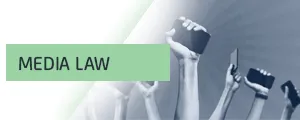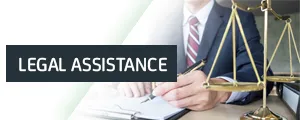Members of Coalition "20-shi Bap" (20th Article of Constitution of Kazakhstan) appealed to UN Special Rapporteur on Freedom of Expression to visit Kazakhstan
13 may 2014
Special Rapporteur
On the Promotion and Protection of
the Right to Freedom of Opinion and Expression
Mr. Frank La Rue
Subject: Kazakhstan tightens legislative restrictions on the right to freedom of opinion and expression and ignores its obligations to ensure that right
Dear Mr. Frank La Rue,
1. A group of organizations, which aim to protect the freedom of speech in Kazakhstan[1], appeals to you in connection with Kazakhstan’s systematic failure and neglect towards its obligations under Article 19 of the International Covenant on Civil and Political Rights. The situation has deteriorated significantly and continues to deteriorate in recent years, when Kazakhstan adopted several acts, significantly limiting the right to freedom of expression in the country, and these restrictions are incompatible with paragraph 3 of Article 19 of the International Covenant on Civil and Political Rights.
Restriction of the right to freedom of opinion and expression on the Internet
2. The right to freedom of expression on the Internet in Kazakhstan has long been facing the toughest restriction. Officially access to web-sites can be blocked only by a court order. However, in reality blocking web-sites without court decisions is commonplace. Blocking activities are undertaken on both Kazakhstani and foreign web-sites, as well as blogs[2]. In April 2014 the Parliament passed an amendment to the Law of the Republic of Kazakhstan "On Communications" , which allows the prosecution authorities to deny access to any online network and (or) means of communication, internet resources and ( or) the information posted on any of these without a court order if those "networks and (or) means of communication are used for criminal purposes that can harm the interests of an individual, the society and the state, as well as for the dissemination of information that violates electoral legislation of the Republic of Kazakhstan, contains calls to extremist and terrorist activities, riots, as well as to participation in mass (public) activities carried out in breach of the established order."
The right of access to information
3. Kazakhstan has not yet adopted the Law on Freedom of or Access to Government Information of public interest, making it difficult or practically impossible to exercise the right to access to information. Existing procedures for obtaining information about the activities of state authorities are highly inefficient: there is a wide range of reasons for denial of access to information, long processing procedures, large number of categories of information for restricted or official use only. The government's intention to develop and adopt the Law on Access to Information in line with international standards remains unfulfilled.
Impunity of crimes against journalists
4. There are administrative and criminal provisions in Kazakhstani laws that hold people accountable for obstructing a journalistic activity. However, in practice the relevant legislative articles have never been applied in the last 23 years of the country’s existence. At the same time, there were 97 recorded cases of attacks or threats against journalists since 2005. In April 2014 the Lower House of Parliament significantly softened the criminal punishment for such crimes in its new draft Criminal Code, encouraging impunity of crimes against journalists, in contradiction with the UN Human Rights Council resolution A/HRC/21/L.6 « Safety of journalists» and the UN Plan of Action on the Safety of Journalists and the Issue of Impunity.
The inconsistency between legislative and administrative frameworks governing the activities of the media in Kazakhstan and the provisions of the paragraph 3 of the Article 19 of the International Covenant on Civil and Political Rights
5. Kazakhstan does not ensure the compliance of its legislative and administrative frameworks in relation to media sector with the provisions of paragraph 3 of Article 19 of the ICCPR. The country’s administrative legislation provides for a ban – temporary or permanent – on the media if it violates the registration procedures, makes errors in output dateline information or fails to distribute free copies among all state bodies as required by the law when all of these have nothing to do with the content of the published materials and there are no claims in relation to the content. Currently, members of the Parliament are discussing the new draft Administrative Code, which contains same restrictions inconsistent with paragraph 3 of Article 19 of the ICCPR as the existing Administrative Code. As for broadcast media, onerous licensing and frequency distribution conditions have been introduced which make transition to digital broadcasting for broadcasters, including small and commercial TV and radio stations, difficult, if not impossible[3].
Unjustified restrictions on the right to freedom of expression under the pretext of combating terrorism, extremism, separatism and during State of Emergency
6. Restrictions on the right to freedom of expression under the pretext of combating terrorism, extremism and separatism have acquired a large scale. The draft of the new Criminal Code tightens criminal liability for promoting terrorism, extremism and separatism, making public appeals on the subject, disseminating information via media and its transmission by means of information and communications technology. Furthermore, a new article that provides for imprisonment of up to 10 years for spreading false information is introduced. This includes facts, as well as opinions and ideas. In addition, a recent special government decree allowed censorship during State of Emergency.
Lack of progress on the decriminalization of libel. Tightened criminal liability for libel
7. Kazakhstan does not implement the recommendation of the UN Human Rights Committee of 2011 to "revise its laws on libel and defamation, so that it fully complies with the provisions of the Covenant." Furthermore, the new draft Criminal Code of Kazakhstan adopted by the Lower House of Parliament in April 2014, which will enter into force from 1st January 2015, provides for stricter criminal liability for defamation (punishment measures include imprisonment from 1 to 3 years) and keeps criminal liability for libel against serving and elected officials.
8. The above facts significantly impede the exercise of the right to freedom of opinion and expression in Kazakhstan. The country’s 161st position out of 180 according to World Press Freedom Index for 2013-2014 is justified, and it is notable that Kazakhstan’s ranking goes down each year. Press and journalists in the country face serious problems due to legal restrictions that do not comply with paragraph 3 of Article 19 of the ICCPR. In recent years there has been no legislation that would improve the position of the press. Instead, legal restrictions that destroy freedom of the press are promoted.
Dear Mr. La Rue,
Taking into account the negative trends that occur in Kazakhstan in the field of freedom of expression; and in view of the country’s failure to comply with the recommendations of the Human Rights Committee and its obligations under provisions of Article 19 of the ICCPR, we ask you of the following:
Yours sincerely,
Ms. Tamara Kaleyeva, President of the International Foundation for Protection of Freedom of Speech "Adil Soz";
Ms. Diana Okremova, President of the Public Fund "Legal Media Center";
Ms. Rosa Akylbekova, Director of the Kazakhstan International Bureau for Human Rights and Rule of Law;
Ms. Zaure Zhumalieva, President of the Public Foundation "Adil Arka";
Mr. Igor Bratsev, International Center for Journalism MediaNet;
Mr. Askar Aktleuov, Public Fund "Tilshi"
On the Promotion and Protection of
the Right to Freedom of Opinion and Expression
Mr. Frank La Rue
Subject: Kazakhstan tightens legislative restrictions on the right to freedom of opinion and expression and ignores its obligations to ensure that right
Dear Mr. Frank La Rue,
1. A group of organizations, which aim to protect the freedom of speech in Kazakhstan[1], appeals to you in connection with Kazakhstan’s systematic failure and neglect towards its obligations under Article 19 of the International Covenant on Civil and Political Rights. The situation has deteriorated significantly and continues to deteriorate in recent years, when Kazakhstan adopted several acts, significantly limiting the right to freedom of expression in the country, and these restrictions are incompatible with paragraph 3 of Article 19 of the International Covenant on Civil and Political Rights.
Restriction of the right to freedom of opinion and expression on the Internet
2. The right to freedom of expression on the Internet in Kazakhstan has long been facing the toughest restriction. Officially access to web-sites can be blocked only by a court order. However, in reality blocking web-sites without court decisions is commonplace. Blocking activities are undertaken on both Kazakhstani and foreign web-sites, as well as blogs[2]. In April 2014 the Parliament passed an amendment to the Law of the Republic of Kazakhstan "On Communications" , which allows the prosecution authorities to deny access to any online network and (or) means of communication, internet resources and ( or) the information posted on any of these without a court order if those "networks and (or) means of communication are used for criminal purposes that can harm the interests of an individual, the society and the state, as well as for the dissemination of information that violates electoral legislation of the Republic of Kazakhstan, contains calls to extremist and terrorist activities, riots, as well as to participation in mass (public) activities carried out in breach of the established order."
The right of access to information
3. Kazakhstan has not yet adopted the Law on Freedom of or Access to Government Information of public interest, making it difficult or practically impossible to exercise the right to access to information. Existing procedures for obtaining information about the activities of state authorities are highly inefficient: there is a wide range of reasons for denial of access to information, long processing procedures, large number of categories of information for restricted or official use only. The government's intention to develop and adopt the Law on Access to Information in line with international standards remains unfulfilled.
Impunity of crimes against journalists
4. There are administrative and criminal provisions in Kazakhstani laws that hold people accountable for obstructing a journalistic activity. However, in practice the relevant legislative articles have never been applied in the last 23 years of the country’s existence. At the same time, there were 97 recorded cases of attacks or threats against journalists since 2005. In April 2014 the Lower House of Parliament significantly softened the criminal punishment for such crimes in its new draft Criminal Code, encouraging impunity of crimes against journalists, in contradiction with the UN Human Rights Council resolution A/HRC/21/L.6 « Safety of journalists» and the UN Plan of Action on the Safety of Journalists and the Issue of Impunity.
The inconsistency between legislative and administrative frameworks governing the activities of the media in Kazakhstan and the provisions of the paragraph 3 of the Article 19 of the International Covenant on Civil and Political Rights
5. Kazakhstan does not ensure the compliance of its legislative and administrative frameworks in relation to media sector with the provisions of paragraph 3 of Article 19 of the ICCPR. The country’s administrative legislation provides for a ban – temporary or permanent – on the media if it violates the registration procedures, makes errors in output dateline information or fails to distribute free copies among all state bodies as required by the law when all of these have nothing to do with the content of the published materials and there are no claims in relation to the content. Currently, members of the Parliament are discussing the new draft Administrative Code, which contains same restrictions inconsistent with paragraph 3 of Article 19 of the ICCPR as the existing Administrative Code. As for broadcast media, onerous licensing and frequency distribution conditions have been introduced which make transition to digital broadcasting for broadcasters, including small and commercial TV and radio stations, difficult, if not impossible[3].
Unjustified restrictions on the right to freedom of expression under the pretext of combating terrorism, extremism, separatism and during State of Emergency
6. Restrictions on the right to freedom of expression under the pretext of combating terrorism, extremism and separatism have acquired a large scale. The draft of the new Criminal Code tightens criminal liability for promoting terrorism, extremism and separatism, making public appeals on the subject, disseminating information via media and its transmission by means of information and communications technology. Furthermore, a new article that provides for imprisonment of up to 10 years for spreading false information is introduced. This includes facts, as well as opinions and ideas. In addition, a recent special government decree allowed censorship during State of Emergency.
Lack of progress on the decriminalization of libel. Tightened criminal liability for libel
7. Kazakhstan does not implement the recommendation of the UN Human Rights Committee of 2011 to "revise its laws on libel and defamation, so that it fully complies with the provisions of the Covenant." Furthermore, the new draft Criminal Code of Kazakhstan adopted by the Lower House of Parliament in April 2014, which will enter into force from 1st January 2015, provides for stricter criminal liability for defamation (punishment measures include imprisonment from 1 to 3 years) and keeps criminal liability for libel against serving and elected officials.
8. The above facts significantly impede the exercise of the right to freedom of opinion and expression in Kazakhstan. The country’s 161st position out of 180 according to World Press Freedom Index for 2013-2014 is justified, and it is notable that Kazakhstan’s ranking goes down each year. Press and journalists in the country face serious problems due to legal restrictions that do not comply with paragraph 3 of Article 19 of the ICCPR. In recent years there has been no legislation that would improve the position of the press. Instead, legal restrictions that destroy freedom of the press are promoted.
Dear Mr. La Rue,
Taking into account the negative trends that occur in Kazakhstan in the field of freedom of expression; and in view of the country’s failure to comply with the recommendations of the Human Rights Committee and its obligations under provisions of Article 19 of the ICCPR, we ask you of the following:
(1) to send a request to the Government of Kazakhstan to visit the country with the view to writing a report on the situation with freedom of opinion and expression, and to visit Kazakhstan in the very nearest future;
(2) to prepare and submit an official Statement to the President and the Government of the Republic of Kazakhstan stressing that legislative restrictions on the right to freedom of opinion and expression envisaged in the new Criminal Code and the Code of Administrative Offences are unacceptable, and that adoption of other laws restricting these rights is also unacceptable, if the restrictions concerned contradict paragraph 3 of Article 19 of the ICCPR.
Yours sincerely,
Ms. Tamara Kaleyeva, President of the International Foundation for Protection of Freedom of Speech "Adil Soz";
Ms. Diana Okremova, President of the Public Fund "Legal Media Center";
Ms. Rosa Akylbekova, Director of the Kazakhstan International Bureau for Human Rights and Rule of Law;
Ms. Zaure Zhumalieva, President of the Public Foundation "Adil Arka";
Mr. Igor Bratsev, International Center for Journalism MediaNet;
Mr. Askar Aktleuov, Public Fund "Tilshi"





